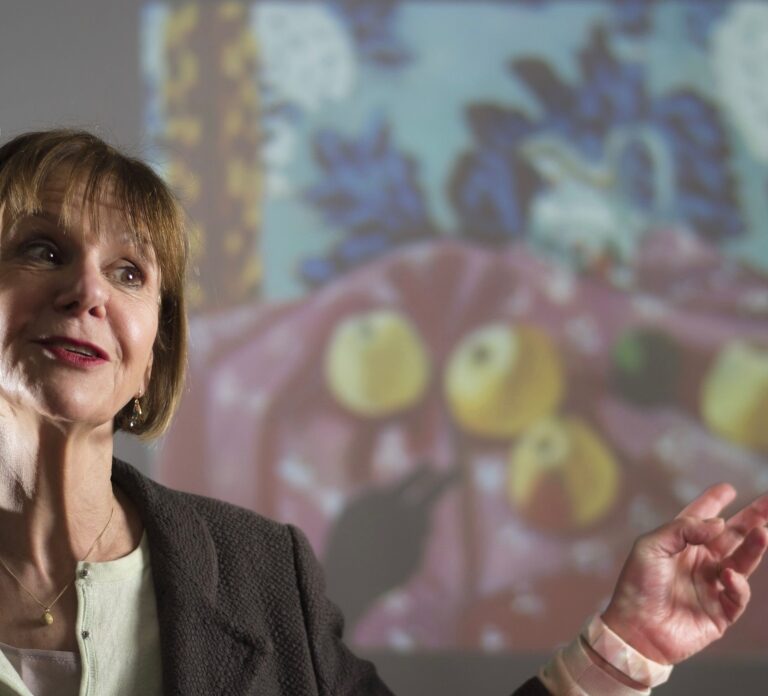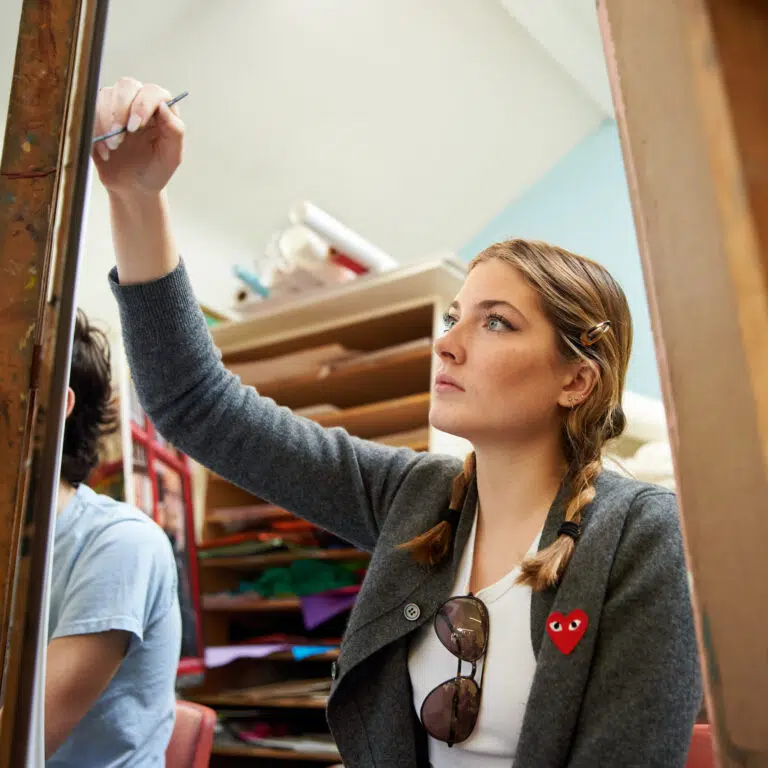History of Art is a very popular subject at Fine Arts College. A-level History of Art assumes no prior knowledge of this area of study and is suitable for a range of students who wish to develop their interest in, and enjoyment of, the subject.
The subject examines the relationships between society and art, exploring how historical and social contexts contribute to the interpretation and meaning of painting, sculpture and architecture. Students develop a historical and critical awareness of great works from Ancient Greece and Rome to present day.
Students also acquire an understanding of key techniques, colour, styles, composition and the use of visual signs. Teaching is centred on class discussions and presentations using slides and online materials. Students acquire a sophisticated grasp of research skills through regular essay writing, the analysis of works of art and architecture and critiquing art-historical texts. For this reason students develop strong critical thinking skills and the ability to analyse and interpret information from a range of sources, skills that are highly valued by employers and universities alike.
What will I learn?
The History of Art A level consists of two externally-examined papers:
Paper One: Virtual Analysis and ThemesSection A – Virtual analysis: Painting Sculpture Architecture Section B – Themes: Identities in art and architecture War in art and architecture |
Paper Two: PeriodsInvention and Illusion: The Renaissance in Italy (1420-1520) Brave New World: Modernism in Europe (1900-1939) Rebellion and revival: the British and French Avant-Garde (1848–99) |
Department successes and trips
Over the past twenty years students have followed degree and postgraduate courses at leading universities including the Courtauld Institute, UCL, Bristol University, Edinburgh University, Nottingham University, Leeds University, Manchester University, and Sussex University. Many graduates have gone on to pursue careers as curators in museums and galleries, in journalism (including working at the BBC), and as academics.
We regularly visit art collections and buildings of interest in London, including the National Gallery, the Courtauld Institute, and the Tate Galleries. The College organises two European study trips annually, visiting art historical centres in Florence, Venice, Madrid, and Paris.
Examination board: Edexcel/Pearson



